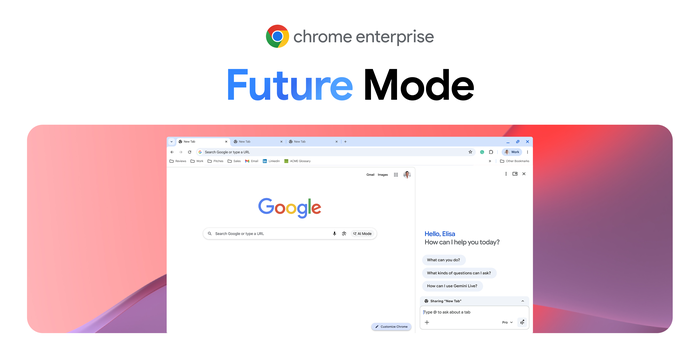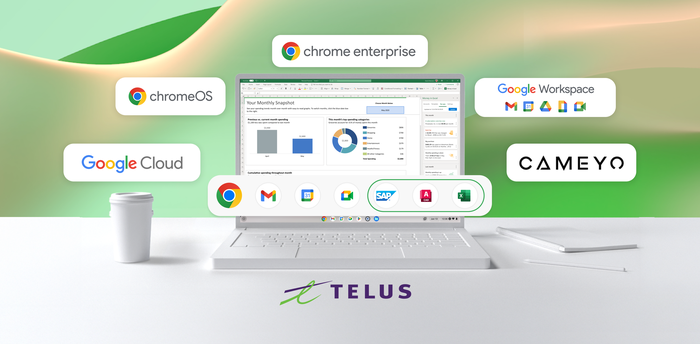Chrome Insider: What's new in Chrome Enterprise, Release 73
Sarah Ison
Program Manager, Chrome Enterprise
If you’re an admin in charge of Chrome Browser or a fleet of Chrome devices for your organization, here’s what you need to know about what’s new in Chrome 73. For the full list of updates, and more detailed descriptions, be sure to read the release notes.
Users can now see if their browser is managed
Beginning in Chrome 73, any users that have enterprise policies set in Chrome will see an indicator in the action menu telling them that Chrome is being managed. This indicator directs users to the Help Center page where they can find more information.
Letting users know that their browser is configured and managed by your organization provides important context, so they understand whether their administrator can set up or restrict certain features, install extensions, configure printers, or control other settings.
This change will be rolled out progressively, so some users will not immediately see the indicator when they update to Chrome 73.


Dark mode for Mac now available in Chrome Browser
In Chrome 73, Chrome Browser will begin supporting Dark Mode in macOS Mojave. This means if system theme is set to dark, Chrome Browser on Mac will now also use a dark theme in the UI, with no disruptions to the user experience. Dark mode has a number of user benefits for working in low light, including improved readability of text through better contrast, and reduced eye fatigue.
Managed guest sessions offer expanded capabilities
Managed guest sessions give multiple users access to shared Chrome devices without needing to sign in, and offer admins more features than previously available functionality (known as “public sessions”) for greater control and visibility. Managed guest sessions also provide additional capabilities including certificates, policies, and the full catalog of Chrome apps and extensions. Existing public session devices should be updated to managed guest sessions automatically with no manual change required. You can learn more in this blog post.
Managed Chrome devices can now run Linux apps
Last year, we announced that users would be able to run Android Studio and other Linux apps on Chrome devices, and this feature was made available on a variety of Chrome devices for consumers with Chrome 69. As of Chrome 73, this feature is also available for managed devices, with the inclusion of a setting that allows admins to enable or disable the use of virtual machines--a requirement for using Linux apps on managed Chrome OS devices.

To stay in the know, bookmark and visit our Help Center, or sign up to receive new release details as they become available.
And while we have you, new this month is our Chrome OS Administrator credential which help IT admins to demonstrate their skills in deploying and managing a Chrome OS environment. You can find out more and register here.



